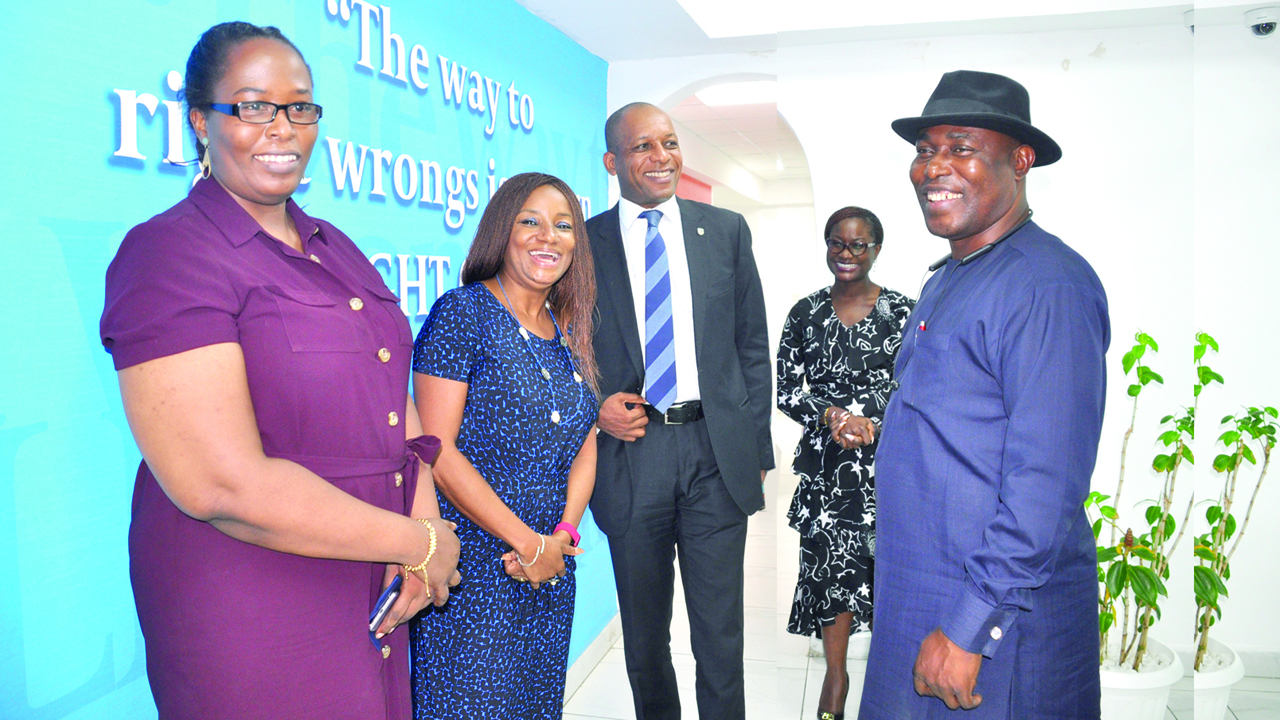
The banking industry is undergoing sweeping changes following the phenomenal growth of the financial technology (fintech) ecosystem in the past few years.
During a courtesy visit to The Guardian Group’s corporate headquarters yesterday, members of the management said Stanbic IBTC is fully aware that embracing digital options is not only an option but “the way to go” and that the bank is retooling its operations to adapt to the disruption.
Chief Executive of Stanbic IBTC Trustees, Charles Omoera, said the group sees itself beyond the narrow prism of conventional banking and thinks of itself as a platform business.
In realisation of this, he said, customers are enabled to access all financial services – insurance, pensions, loan, banking and others – on its mobile app. He added that the bank is actively involved in advocacy for the adoption of a digital signature as part of the necessary innovations to fully migrate Nigerians to the digital era.
“We also have a digital subsidiary, which operates like other fintechs. We do not call ourselves a bank anymore but a platform business. For us, the major transition is to ensure that all our operations can be done digitally – you can do your investment service, stockbroking service, insurance service and pension service as well as take a loan without visiting our offices,” Omoera said.
He stressed that the bank was moving to a stage where customers could do everything digitally. The team added that the bank would continue to improve its digital offerings, leveraging the opportunity to optimise cost.
He said that the trustee subsidiary was creating a massive impact engaging mutual fund managers and bond issuers to ensure they operate within set guidelines, adding that estate planning has become an important service.
On pension funds, he continued: “All over the world, pensions are invested in infrastructure. That is the way it should be because a pension has a long-term maturity period. I don’t see any problem in using pension funds to finance infrastructure.
“In Nigeria, pension funds should go into financing infrastructure so that they can work for us today and in the future. If we use pension funds to construct roads, for instance, those roads could be tolled; that will reduce time wasted by people and impacts of bad roads on vehicles.”
He admitted there could be a lag in remittance but said that many companies pay up eventually.
Also speaking, Head of Marketing and Communications, Bridget Oyefeso-Odusami, said the group is creating positive impacts across the economy through its insurance brokerage, life insurance, stock brokerage, pension and fund management operations.
She added that the group is at the forefront in supporting the growth of small and medium-scale enterprises (SMEs), giving them access to finance.
The visiting team commended The Guardian for sustaining the quality journalism the newspaper has been known for since its inception.
The Managing Director/Editor-in-Chief of The Guardian Group, Martins Oloja, charged Stanbic IBTC to increase its awareness on the relevance of insurance to the economy, adding that the stakeholders must do something about the poor perception towards the industry.



